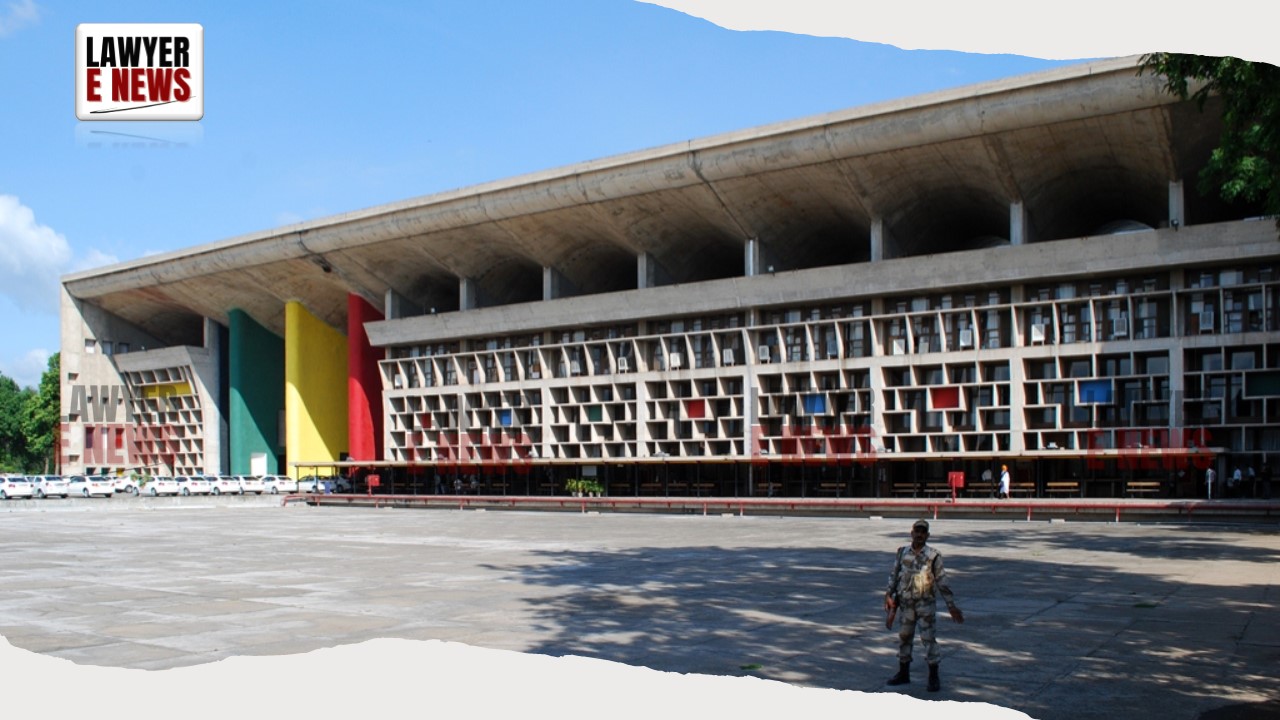-
by Admin
16 February 2026 1:47 PM



Technical Lapses Should Not Defeat Substantive Justice - In a significant ruling upholding the rights of decree-holders, the Punjab & Haryana High Court, while deciding Civil Revision, set aside an order dismissing an execution petition on technical grounds and reaffirmed that fraudulent transfers of property to defeat creditors are voidable under Section 53 of the Transfer of Property Act, 1882.
Justice Nidhi Gupta, in a judgment pronounced on 07 February 2025, held that “dismissing execution proceedings merely for non-production of property details, without considering the merits of the alleged fraudulent transfer, is an excessively harsh approach that undermines the purpose of execution”.
The Court restored the execution petition filed by M/s Charanji Lal Raj Kumar Commission Agent against Mohinder Singh, while imposing a cost of ₹20,000, to be deposited in the Poor Patients’ Welfare Fund at PGIMER, Chandigarh, ensuring due diligence in future proceedings.
“Fraudulent Asset Transfers Cannot Be Used to Evade Debt Repayment”
The dispute stemmed from a loan transaction dating back to 2012, where the respondent-judgment debtor borrowed ₹7,32,000/- from the petitioner but failed to repay. The petitioner obtained a civil decree for recovery on 30 January 2018, following which execution proceedings were initiated.
However, during execution, it was discovered that on 03 October 2012, the judgment-debtor had transferred property to his wife and son via a release deed without receiving any consideration. Arguing that this was a fraudulent transfer intended to defeat creditor claims, the decree-holder sought attachment of the said property.
The trial court, however, rejected the petitioner's plea, holding that the transfer predated the filing of the recovery suit and was not covered under the doctrine of lis pendens (Section 52 of the Transfer of Property Act). Subsequently, the execution petition was dismissed for non-production of the judgment-debtor’s property details.
Reversing the lower court’s finding, Justice Nidhi Gupta emphasized: “Section 53 of the Transfer of Property Act operates independently of Section 52. Even if a transfer is made before a suit is filed, it can be declared voidable if executed with the intent to defeat or delay creditors. The trial court erred in mechanically dismissing the claim without properly considering its merits.”
The Court further observed that mere technical lapses should not frustrate the execution of a legally valid decree and that execution courts must ensure that substantive justice prevails over procedural technicalities.
“Execution Proceedings Cannot Be Defeated by Procedural Oversights”
The High Court took a pragmatic approach, noting that while decree-holders must diligently pursue execution, the dismissal of an execution petition solely due to the non-filing of property details was unwarranted.
Citing Waryam Singh v. Rameshwar Dass (1989), the Court reaffirmed that “where a judgment-debtor transfers property with an intent to defeat or delay creditors, such transfers can be set aside at the creditor’s option”.
“Execution proceedings are meant to enforce judicial decrees, not to create further legal hurdles for decree-holders. Courts must adopt a balanced approach, ensuring compliance with procedural requirements while preventing the misuse of legal loopholes by judgment-debtors,” the Court stated.
Accordingly, the High Court restored the execution petition, granting the decree-holder one effective opportunity to furnish property details while imposing a monetary cost to ensure due diligence in the future.
“Restoring Faith in Execution Mechanisms: High Court Issues Clear Directives”
This ruling sends a strong signal that fraudulent asset transfers by judgment-debtors will not be tolerated, and execution courts must facilitate the realization of decrees rather than frustrate them on procedural grounds.
By setting aside the dismissal order and ensuring that the decree-holder gets an opportunity to establish the fraudulent nature of the transfer, the High Court has reinforced the principle that justice must not be sacrificed at the altar of procedural formalities.
The case now returns to the Executing Court, where the petitioner will be allowed to submit the required property details and proceed with the attachment of the judgment-debtor’s assets.
With this judgment, the Punjab & Haryana High Court has upheld the integrity of execution proceedings, ensuring that decree-holders are not left remediless due to technical dismissals, while simultaneously deterring judgment-debtors from attempting to escape liability through fraudulent transfers.
Date of Decision: 07 February 2025
